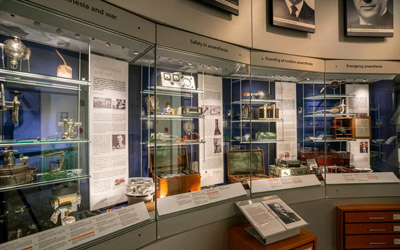MCC Museum

⭐ Highlights
The Ashes Urn
The tiny terracotta urn associated with the 1882–83 England–Australia series is the game’s most storied relic.It’s only about 11 cm tall—and it isn’t the series trophy. The urn’s symbolism grew from satire into legend.
📍 Central trophy case
The Laws of Cricket
Marylebone Cricket Club has been custodian of the Laws since 1788; manuscripts and early printings show how the game was standardised.Trace the evolution of key rules—LBW, bat shapes, pitch dimensions—through annotated editions.
📍 Early cricket section
Players’ Bats, Caps and Jerseys
Match-used equipment from Tests and World Cups turns scorecards into tangible history.Compare blade profiles and grips across eras; technology tracks with changes in batting style.
📍 International cricket gallery
Cricket on Canvas
Oil portraits and historic scenes document the sport’s social world—from club patrons to modern icons.Spot how artists signal status: blazers, caps, pavilion backdrops and carefully chosen bats.
📍 Portraits & painting gallery
Opening Hours
🤓 Fun Facts
The MCC Museum opened in 1953, making it one of the oldest sports museums in continuous operation.
MCC has guarded and revised the Laws of Cricket since 1788; even after the ICC era began, the Laws themselves still carry MCC’s authority.
The Ashes urn rarely travels due to its fragility; modern Ashes series are contested for a replica trophy while the urn remains at Lord’s.
Early equipment on display shows bats evolving from curved, hockey-stick shapes (to counter underarm bowling) to today’s straight bats as overarm bowling took hold.
Similar Museums
Nearby Places

The Showroom
8 min 👣
Marylebone Theatre
13 min 👣
Sherlock Holmes Museum
15 min 👣
Fleming Museum
17 min 👣
Madame Tussauds London
19 min 👣
Royal Academy of Music Museum
21 min 👣
Wallace Collection
24 min 👣
Moco Museum
25 min 👣
Royal College of Physicians Museum
25 min 👣
Freud Museum
27 min 👣


